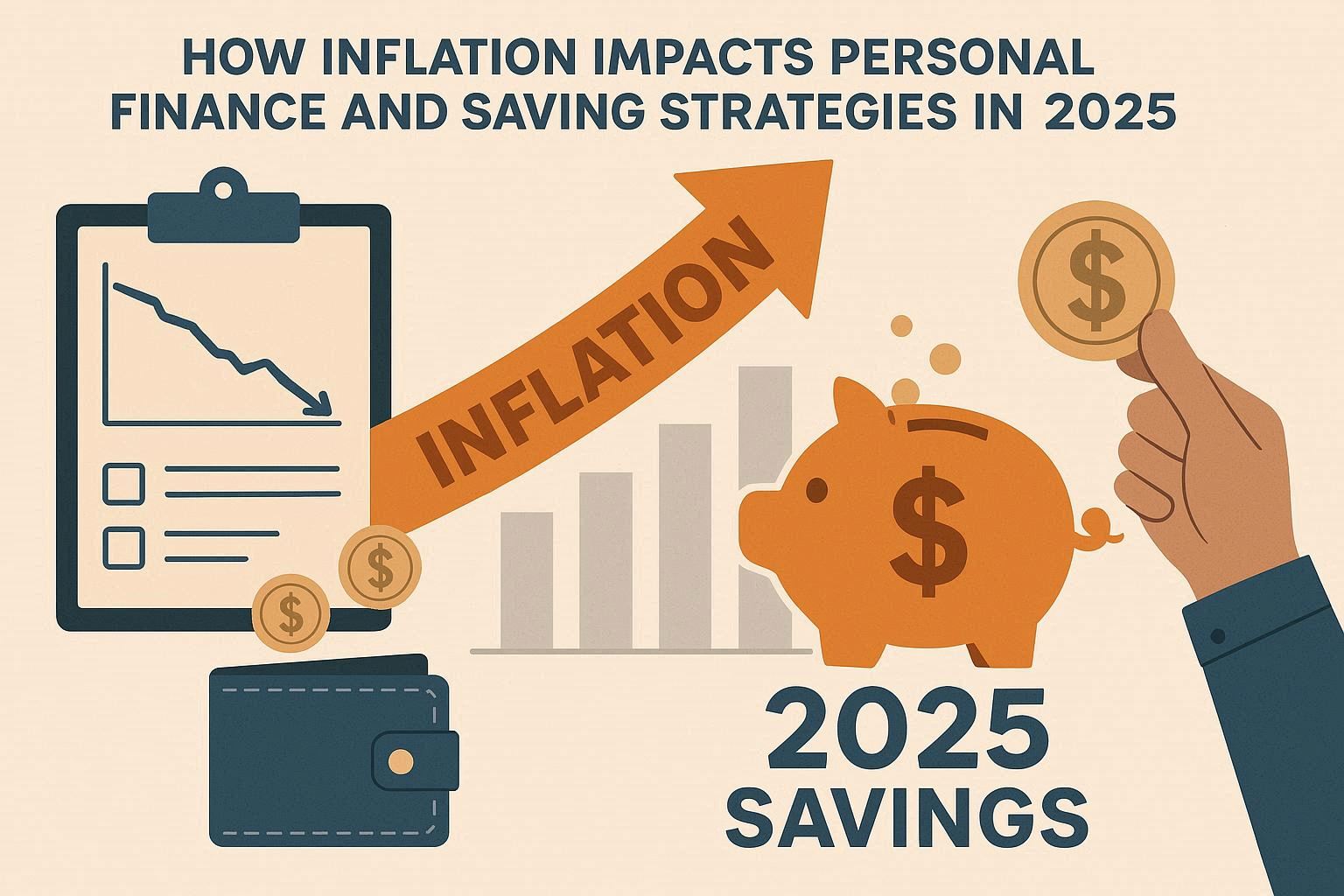Inflation has always been a central economic factor that affects everyone—from large corporations to individual households. In 2025, inflation continues to influence the way people earn, spend, and save money. Rising prices on essential goods, housing, and energy push consumers to rethink their financial habits.
In this article, we’ll explore how inflation impacts personal finances and share practical saving strategies to protect your money in 2025.
What is Inflation?
Inflation is the rise in the general price level of goods and services over time. When inflation increases, the purchasing power of money decreases, meaning you need more money to buy the same item compared to last year.
Example: If inflation is 6%, a product that cost $100 last year now costs $106.
Impact: Savings lose value if they are not invested or protected.
1. Effects of Inflation on Personal Finance
1. Reduced Purchasing Power
Everyday expenses like groceries, fuel, and rent increase during inflation, leaving households with less disposable income.
2. Higher Cost of Borrowing
Central banks often raise interest rates to control inflation. This makes loans, mortgages, and credit card debt more expensive.
3. Declining Value of Savings
If your savings account interest is lower than the inflation rate, your real wealth decreases over time.
4. Investment Risks and Opportunities
Inflation can harm some investments but boost others (e.g., real estate often gains value during inflation).
2. Saving and Investment Strategies in 2025
1. Diversify Investments
Relying only on cash savings can be risky during inflation. Diversify into:
- Stocks (companies that perform well during inflation, like energy or tech)
- Real estate (property values often rise with inflation)
- Commodities (gold, silver, oil)
2. Use High-Yield Savings Accounts
Traditional savings accounts often offer low interest. Instead, choose high-yield savings or money market accounts to reduce the inflation gap.
3. Budget Smarter
Reevaluate monthly expenses. Cutting unnecessary subscriptions, cooking at home, or buying in bulk can help manage rising costs.
4. Invest in Yourself
Education and skill development provide the best protection. In 2025, digital skills, AI knowledge, and entrepreneurship training are key to higher earning potential.
5. Build an Emergency Fund
Keep at least 3–6 months of living expenses in a liquid account. Inflation increases uncertainty, making emergency funds more critical than ever.
3. Example: Managing Inflation in Daily Life
Imagine a family with a monthly income of $2,000. If inflation rises by 8%, their grocery bill increases from $400 to $432, fuel costs from $200 to $216, and rent from $800 to $864. Without adjusting, the family spends $112 more each month.
By cutting unnecessary expenses (like entertainment subscriptions) and switching to bulk purchases, they save $120—enough to offset inflation.
Conclusion
Inflation in 2025 continues to challenge households worldwide, but with smart strategies, you can protect and even grow your finances. Focus on diversified investments, disciplined budgeting, and skill development. Remember, while inflation reduces the value of money, it also creates new opportunities for those prepared to adapt.
By applying these saving strategies, you’ll not only survive inflation but thrive in a changing economy.

